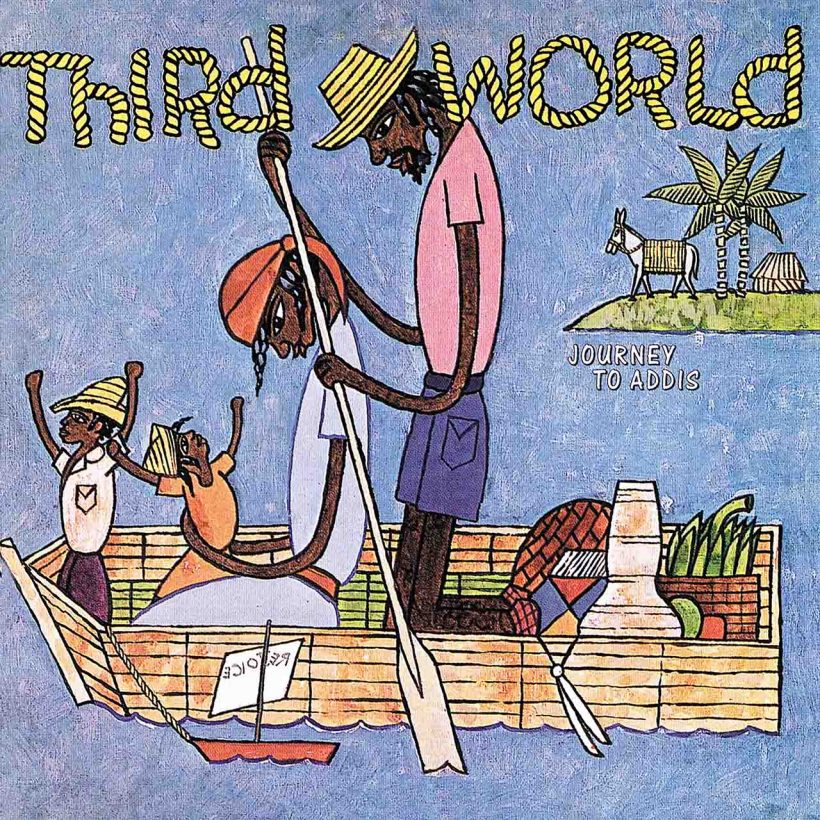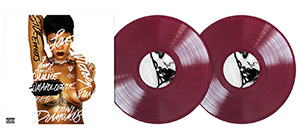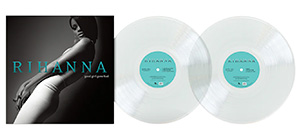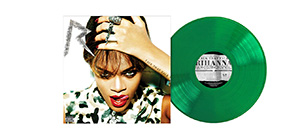‘Journey To Addis’: Third World’s Rise To Reggae’s Top Table
The Jamaican group’s pioneering reggae fusion style on this album brought them international renown.

A meteoric rise from obscurity to global stardom in 1978 was a clear case of third-time lucky for the Jamaican reggae sextet Third World. That’s when Journey To Addis, the group’s follow-up to their commercially unsuccessful first two albums (1976’s Third World and 77’s 96° In The Shade) placed the band firmly on the international music map. With its seamless blend of reggae, R&B, pop, and disco elements, the album introduced a new style dubbed “reggae fusion.” Though the group’s intermingling of genres upset some purists, Journey To Addis was a fresh and innovative record that propelled Third World to reggae’s top table.
Third World’s musical journey began in 1973 when they were co-founded by keyboardist Michael “Ibo” Cooper and classical music cello prodigy-turned-guitarist Stephen “Cat” Coore, son of the noted Jamaican politician David Coore, who was the country’s Deputy Prime Minister between 1972 and 1978. The two young musicians were well-acquainted musically having played together in the Jamaican band Inner Circle in the late 1960s. They were joined in Third World by fellow Inner Circle defectors, lead singer Milton “Prilly” Hamilton and percussionist Irvin “Carrot” Jarrett. Completing the lineup were bassist Richard “Bassie” Daley, whose resume included backing up the popular Jamaican singer Ken Boothe, and drummer Carl Barovier.
Listen to Third World’s Journey to Addis now.
Chris Blackwell brought Third World to Island Records after seeing them open for Bob Marley & The Wailers on a UK tour. The band debuted for Island with the self-produced single “Railroad Track” in 1975, which preceded their excellent self-titled debut LP a year later but both records didn’t garner much attention. Third World’s second album, 96° In The Shade, saw the arrival of soulful singer William “Bunny Rugs” Clarke and UK-born drummer Willie Stewart, former members of Inner Circle. Their presence gave the band new impetus but 96° In The Shade, which witnessed the group’s fusion of styles further evolving, couldn’t break into the mainstream either.
But in 1978, with the release of their third album, Journey To Addis, Third World achieved the commercial breakthrough they had craved. The album’s catalytic track “Now That We Found Love” – a sped-up reggae fusion version of a 1974 O’Jays’ message song penned by Philly soul writers/producers Kenny Gamble and Leon Huff – evolved from an impromptu studio jam session. It impressed Gamble, who told Jamaica’s The Gleaner newspaper in 2018: “(It was) their reggae-disco rendition that put the song on the airwaves and made it a chartbuster. Bunny Rugs added so much to the song in the studio.”
Besides their memorable O’Jays’ cover, Third World served up a radical reimagining of Don Drummond & The Skatalites’ 1965 single “Addis Ababa,” transforming it into a cinematic instrumental titled “Journey To Addis,” highlighting the band’s skillful musicianship and layered production sound.
Other standouts on the album were the Top 20 UK hit single “Cool Meditation,” featuring a wailing bluesy harmonica, and “African Woman,” where silky vocal harmonies were juxtaposed with pattering percussion.
Fuelled by the success of “Now That We Found Love,” Journey To Addis – which came in a cover illustrated by Tony Wright, a London artist who created album jackets for everyone from Bob Marley to Bob Dylan – rose to No. 55 on The Billboard 200 and hit No. 30 in the UK.
Still going strong today, Third World have over 20 albums in their discography but none of them has resonated with the public as much as Journey To Addis. It remains the go-to album in their catalog, representing a career benchmark. Its significance is not lost on Third World’s Michael “Ibo” Cooper, who enthused about it to Peepal Tree Press in 2023. “I think we hit the peak with the Journey to Addis album,” he declared. “We were flying.”










